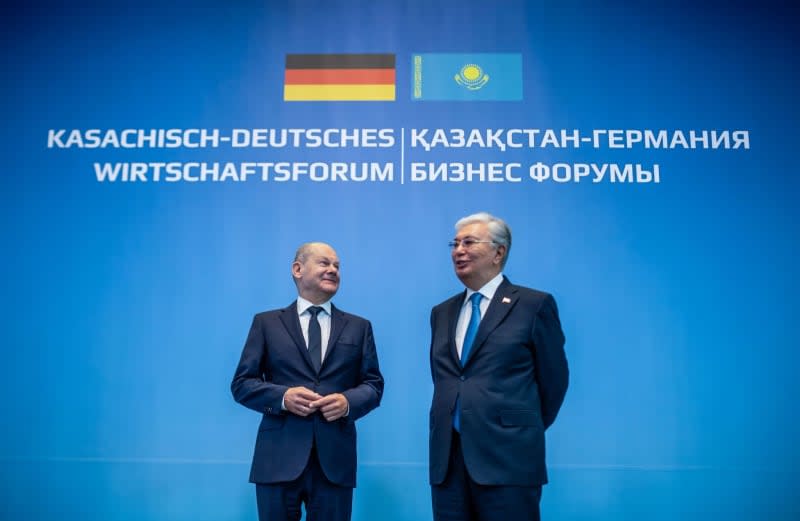Brandenburg refinery set to receive oil from Kazakhstan for longer

One of Germany's biggest refineries is set to receive crude oil from Kazakhstan for a longer period of time, the German Economy Ministry confirmed on Monday as Chancellor Scholz visited the Central Asian nation.
The PCK refinery in Brandenburg sources some of its crude oil from Kazakhstan but has been running at lower capacity since 2023 when Germany switched away from using Russian oil.
Until that point, the facility was processing only Russian oil to supply north-eastern Germany with petrol, diesel, heating oil and other products.
But when the Kremlin started the war against Ukraine, Germany halted Russian oil imports and hastened to find other energy sources to lessen its heavy dependence on Russian supplies.
Berlin also took control of the refinery, which is majority owned by subsidiaries of Russian state oil company Rosneft.
Now, officials are signing a follow-up contract in Kazakhstan through Rosneft Germany to ensure supply security and also to protect the business operations of Rosneft Germany, PCK Schwedt and the Miro and Bayernoil refineries in the longer term.
Kazakhstan supplied some 1 million tons of crude oil to PCK last year and is set to provide 1.4 million tons this year.
The contracts signed in Kazakhstan now provide for supply beyond 2024, according to a government spokesman, though no exact quantities were given.
The contract partner is not the government but rather the company owners.
Two German subsidiaries of the Russian state-owned company Rosneft hold a majority stake of 54% in PCK and these have been under trusteeship since September 2022.
Rosneft spokesman Burkhard Woelki told dpa that the contract with Kazakhstan had been extended for an oil delivery of 100,000 tonnes per month until the end of 2025. He added that it was possible to obtain more quantities, as the process was being handled flexibly.
Scholz confirmed over the weekend that sales negotiations involving the Rosneft subsidiaries are underway and are expected to be concluded by the end of the year.
Qatar is said to be a potential discussion partner.
The German ministry said the planned change of ownership could influence whether the European Commission approves a planned subsidy for the expansion of a pipeline from the port of Rostock to Schwedt.
State Secretary Michael Kellner said the Commission has made a preliminary assessment under state aid law. The government's subsidy of up to €400 million ($444 million) for the upgrade of the pipeline is fundamentally justifiable as aid if Russia's Rosneft is no longer the indirect owner.
